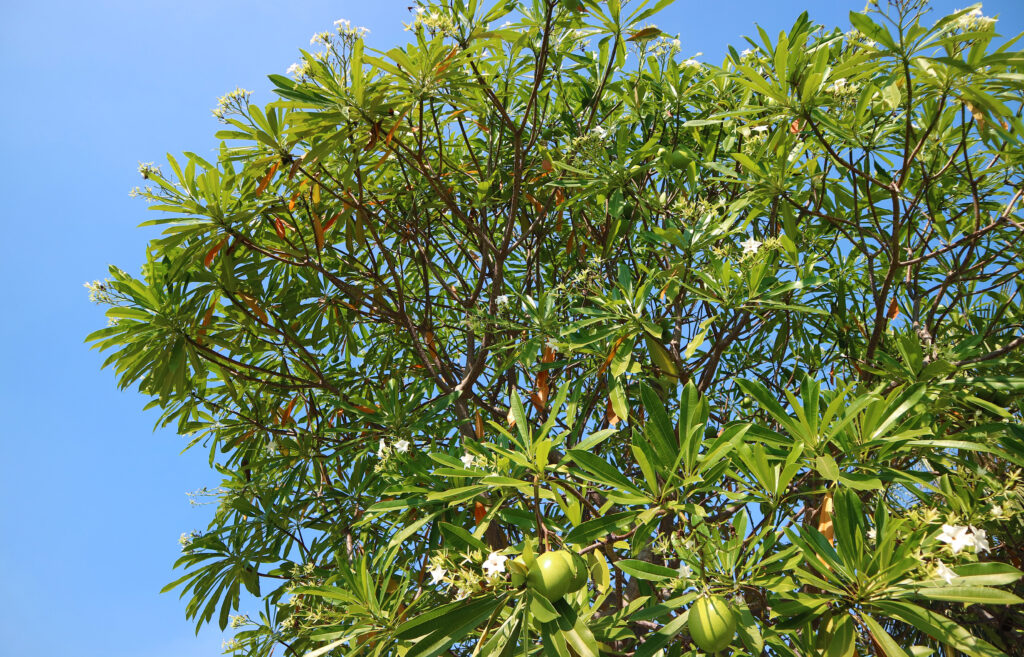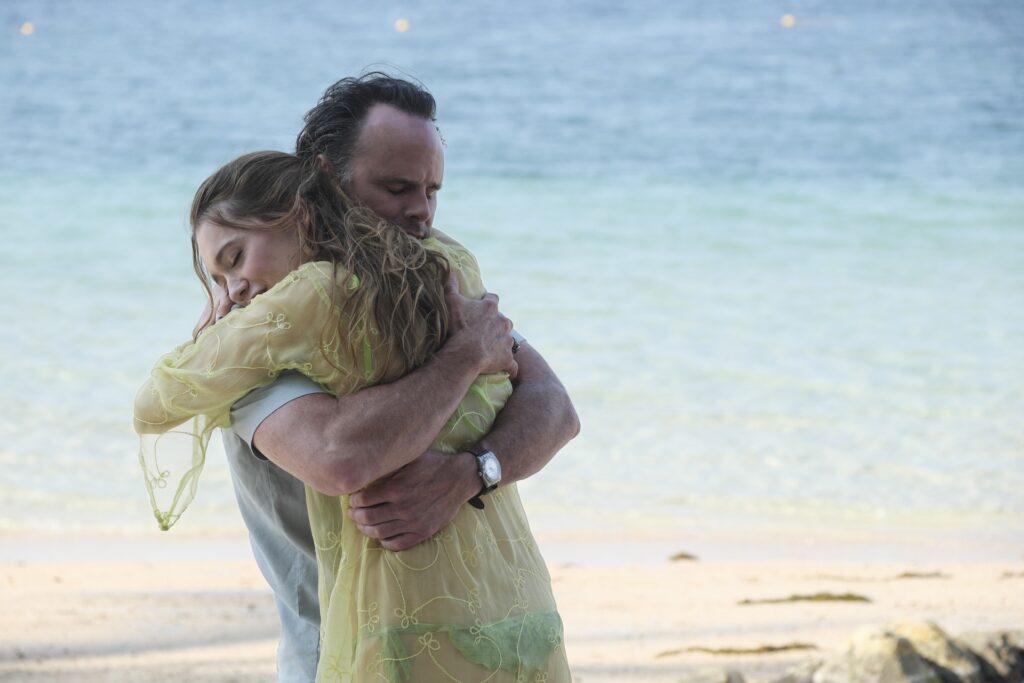- The pong pong tree features prominently in The White Lotus’ season finale
- Tim Ratliff uses it to attempt to poison most of his family
- How likely are you to survive eating it?

Reader beware: The White Lotus finale spoilers below…
There were multiple casualties in the third season finale of The White Lotus, but there could have been more if Tim Ratliff (Jason Isaacs) went ahead with his plan.
After struggling with suicidal ideation for much of the series, an employee tells Tim the fruit on a tree near the family’s rooms is lethal. Locals, she says, call it ‘the suicide tree’, as the seeds are often eaten by people wishing to end their own lives.
Tim picks the fruit, blends it into a pina colada and gives it to his wife Victoria (Parker Posey) and two of his children, Saxon (Patrick Schwarzenegger) and Piper (Sarah Catherine Hook). He refuses to give it to Lochlan (Sam Nivola), claiming it’s because he’s not 21.
Read more: The White Lotus Composer Leaves The Series: Why?
They each have a sip but Tim tells them to stop, claiming the coconut milk has gone bad. Lochlan adds the dregs to a smoothie the next day and collapses, but ultimately survives.
But is the tree real, and can the fruit really kill you?
What’s the science behind the pong pong tree?

According to Jing-Ke Weng, a Northeastern professor of chemistry and chemical biology, the suicide tree is very much real and is also very dangerous.
The pong pong tree is native to Southeast Asia. Its seeds contain cerberin, a type of compound which attacks the heart and inhibits the production of sodium-potassium ATPase.
Read more: The White Lotus season 4 location teased by creator
“These are membrane proteins localized on the membrane of many animal cells, including heart cells,” he said. “They help to maintain the potassium sodium balance outside and within the cell.”
Just a small dose of the seeds can be fatal, but it is possible to recover.
Weng has said that the show did get the science of the tree pretty accurate. “I’m glad to see they got the science right,” he said. “I think people just have a natural interest in toxic things. … People just like these stories. The fact that a popular show, which I do not watch, features scientifically legit toxic foods, is a really great way to trigger people’s natural interest in plants and plant chemistry.”
What did fans make of the finale?

Fans were divided over the entire season and the finale carried on splitting them down the middle.
For the first time, there was more than one death at the end of the show. Chelsea (Aimee Lou Wood), a fan favourite, died in a dramatic shoot out, just after partner Rick (Walton Goggins) had killed the man who turned out to be his father.
Moments later, Rick was gunned down by security guard Gaitok (Tayme Thapthimthong).
Read more: The White Lotus finale: Mike White explains ending
Fans were dismayed over Chelsea’s death, given she was one of the more likeable characters on the show. Others pointed out that her death was inevitable given the character who dies at the end of each season is usually someone who least deserves it.
“Chelsea has this kind of romantic fatalism about their relationship, and you want to buy into it,” explained White in a clip that aired after the episode. “She says to him, ‘Stop fixating on the love you didn’t get and start thinking about the love you have. I’m right here.”
It was Rick’s dedication to revenge that eventually led to Chelsea losing her life.
“It’s a classic theme of Greek tragedy,” added White. “Somebody killing the thing that they love to try to get some revenge.”
If you are experiencing feelings of distress, or are struggling to cope, you can speak to the Samaritans, in confidence, on 116 123 (UK and ROI), email [email protected], or visit the Samaritans website to find details of your nearest branch.